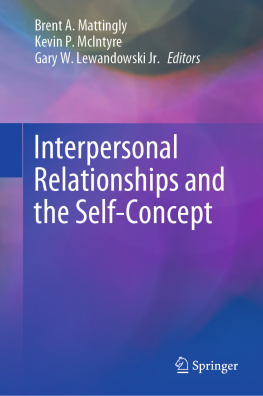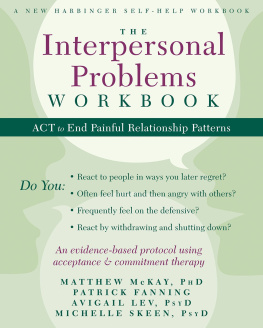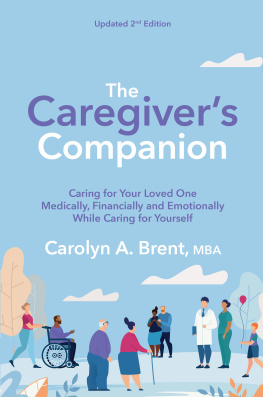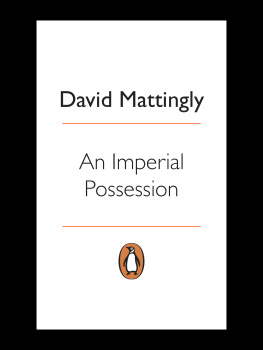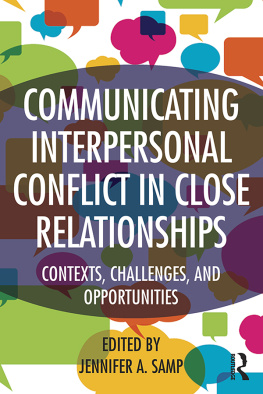Brent A. Mattingly - Interpersonal Relationships and the Self-Concept
Here you can read online Brent A. Mattingly - Interpersonal Relationships and the Self-Concept full text of the book (entire story) in english for free. Download pdf and epub, get meaning, cover and reviews about this ebook. year: 2020, publisher: Springer International Publishing, genre: Politics. Description of the work, (preface) as well as reviews are available. Best literature library LitArk.com created for fans of good reading and offers a wide selection of genres:
Romance novel
Science fiction
Adventure
Detective
Science
History
Home and family
Prose
Art
Politics
Computer
Non-fiction
Religion
Business
Children
Humor
Choose a favorite category and find really read worthwhile books. Enjoy immersion in the world of imagination, feel the emotions of the characters or learn something new for yourself, make an fascinating discovery.
- Book:Interpersonal Relationships and the Self-Concept
- Author:
- Publisher:Springer International Publishing
- Genre:
- Year:2020
- Rating:3 / 5
- Favourites:Add to favourites
- Your mark:
- 60
- 1
- 2
- 3
- 4
- 5
Interpersonal Relationships and the Self-Concept: summary, description and annotation
We offer to read an annotation, description, summary or preface (depends on what the author of the book "Interpersonal Relationships and the Self-Concept" wrote himself). If you haven't found the necessary information about the book — write in the comments, we will try to find it.
Interpersonal Relationships and the Self-Concept — read online for free the complete book (whole text) full work
Below is the text of the book, divided by pages. System saving the place of the last page read, allows you to conveniently read the book "Interpersonal Relationships and the Self-Concept" online for free, without having to search again every time where you left off. Put a bookmark, and you can go to the page where you finished reading at any time.
Font size:
Interval:
Bookmark:
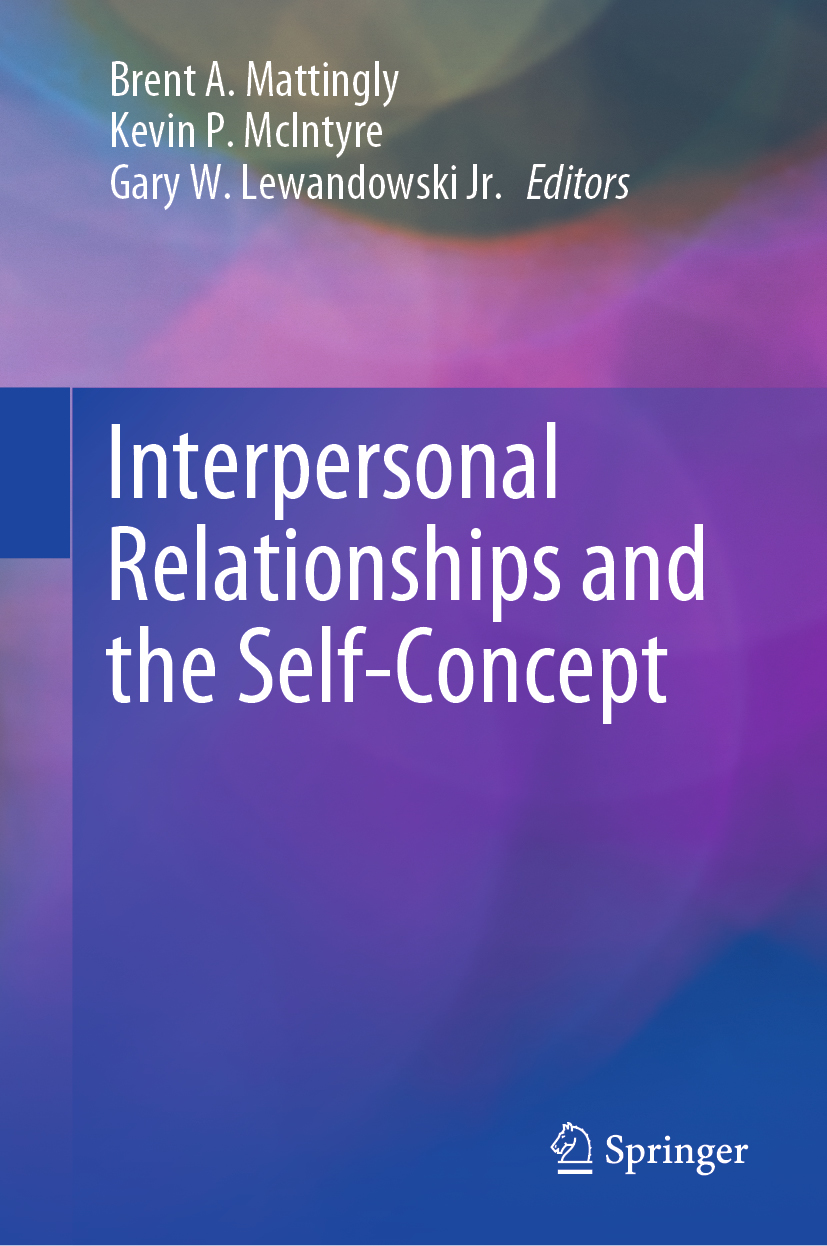

This Springer imprint is published by the registered company Springer Nature Switzerland AG
The registered company address is: Gewerbestrasse 11, 6330 Cham, Switzerland
In the 1980s, when relationship science was starting to emerge as a significant interdisciplinary field, there was almost nothing directly focused on how adult relationships affect the self-concept. More recently, researchers (most notably some of those with chapters in this book) have built explicitly on some of the early (and still prominent) seminal relationship theories, especially interdependence and attachment theory, to explore ways in which relationships shape the self-concept.
However, it was in this early context that I, with Elaine Aron (my life partner, close relationship partner, and collaborator, who definitely shaped my self-concept, all for the better) developed the self-expansion model. This model includes a major explicit focus on relationships effect on the self-concept. The model was our attempt to integrate two of my favorite philosophical ideas with our scientific knowledge of social behavioral processes. One of these was the development of the self through love as spelled out in Socrates long quote from Diotima in theSymposium, about how love leads to personal expansion and growth to the highest level. The other philosophical influence was from Eastern philosophy, the section in theUpanishadsthat describes love as the basis of life, but in a curious way: All lovelove of house, love of things, love of spouse, love of childis directed toward the self(Brihadaranyaka Upanishad4.V.1).
Motivational principle: People seek to expand their potential efficacy, to increase their ability to accomplish goals (whether or not they are aware of ultimate philosophical goals). That is, a fundamental human motive is posited to be what diverse theories have previously described as exploration, effectance, self-improvement, curiosity, competence, or a broadening of ones perspective. Further, given this motives importance, experiencing novelty, interest, and/or challenge (or even experiences typically associated with rapid expansion, such as exciting experiences involving novelty and challenge) should be particularly rewarding.
Inclusion-of-other-in-the-self principle: One way in which people seek to expand the self is through close relationships, because in a close relationship the others resources, perspectives, and identities are experienced, to some extent, as ones own.
Both of these principles have seemingly inspired a huge body of research and thinking (for a review see Aron, Lewandowski, Mashek, & Aron, 2013), particularly on the topic of how relationships shape the self-concept, much of which is summarized, and expanded, in this book.
Of course, importantly, this books focus is not just on the self-expansion model, but as noted, also builds on interdependence theory (e.g., Chaps.on self-concept clarity, and much more throughout).
I have to say that when I was invited to write this Foreword, I sat down with a plan to quickly review the chapter drafts, reading just the abstracts and conclusions, and then get this written quickly to meet a deadline. However, as I started looking at the chapters, I was captivated. I am reasonably knowledgeable about relationship research generally and especially, of course, the work emerging directly from the self-expansion model. But I was blown away in chapter after chapter by interesting new ideas, studies I had not known about, groundbreaking integrations, and really creative new directions. I just could not resist reading this book closely. And for those of you for whom even the basics are new, you will learn so much. Each chapter is done in a way that is scholarly, yet should be very accessible to anyone interested in relationship science, including undergraduates.
The book begins with Chap.(by the editors!), laying out the fundamental inclusion-of-other-in-the-self principle of the self-expansion model (along with their important two-dimensional theory that importantly expanded it), as well as how interdependence theory helps us understand the ways relationships change our priorities, goals, and motives. This opening chapter integrates many current studies and diverse measures, laying a foundation for much of the rest of the book.
Then, Chap., by Slotter and Hughes, deepens our understanding of including other in the self in another way, focusing on the most early and ongoing relationship stages, especially building on Slotters (and others) revolutionary studies showing we include someone in the self even when just romantically attracted to the person, and more striking, even include in the self someone that the one we want is interested in. I found this a really deep and thoughtful chapter that pulls together a lot of diverse theory and research in creative and persuasive ways, with a particularly interesting section on potential future directions.
Chapter, by Susan Sprecher, builds on her pioneering work, using experimental methods even in diverse real-world contexts (ranging from face-to-face to various online settings). This work significantly advances our understanding of how (and under what conditions optimally) self-disclosure between strangers, or even just being attracted to someone on a dating site, leads us to experience an overlap of the self with the other.
Font size:
Interval:
Bookmark:
Similar books «Interpersonal Relationships and the Self-Concept»
Look at similar books to Interpersonal Relationships and the Self-Concept. We have selected literature similar in name and meaning in the hope of providing readers with more options to find new, interesting, not yet read works.
Discussion, reviews of the book Interpersonal Relationships and the Self-Concept and just readers' own opinions. Leave your comments, write what you think about the work, its meaning or the main characters. Specify what exactly you liked and what you didn't like, and why you think so.

